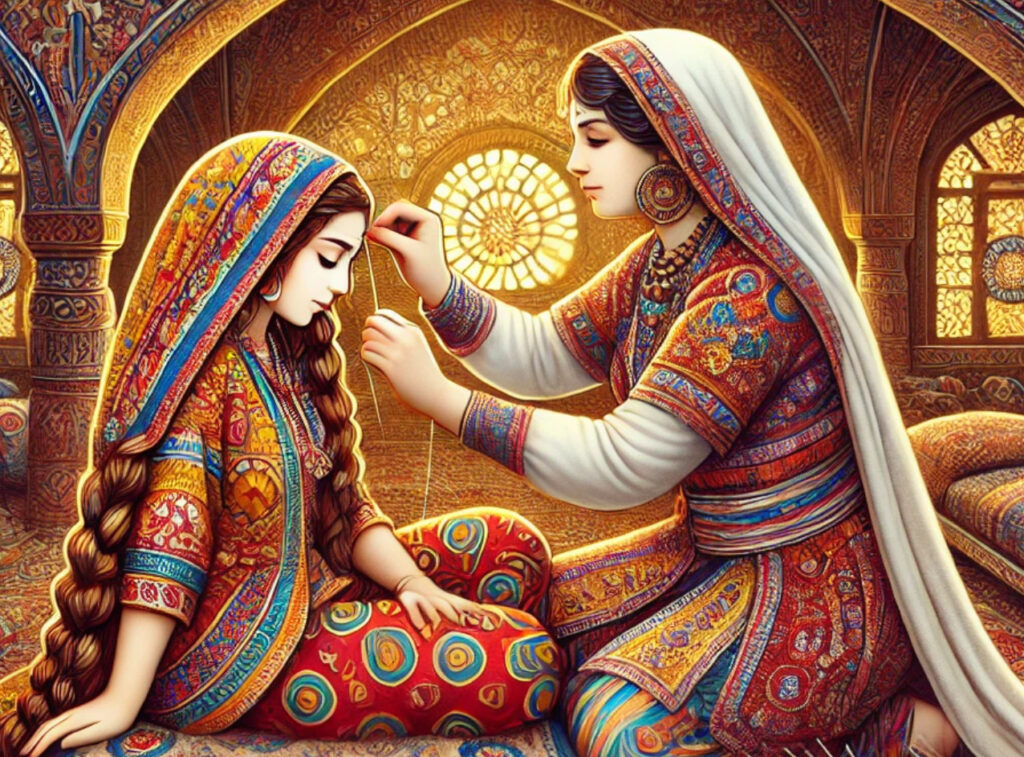
Threading has deep cultural significance in many societies, transcending its functional role as a hair removal technique to become a practice embedded with symbolism, tradition, and beauty ideals. Its cultural significance can be observed across different regions and time periods:
1. A Rite of Passage
In several cultures, threading has been tied to important life transitions:
• Persian Culture:
• In Iran, threading, known as “Band Andazi,” was often a symbolic act performed for young women as they came of age. It marked the transition from childhood to womanhood and readiness for marriage.
• This practice was considered both a beauty enhancement and a societal milestone.
• South Asian Culture:
• In India and Pakistan, threading is an essential part of bridal preparation. It is performed to enhance the bride’s appearance for her wedding day, emphasizing beauty as a reflection of cultural and spiritual purity.
2. Beauty and Social Norms
Threading is closely tied to cultural standards of beauty:
• Middle Eastern Cultures:
• Neat, well-defined eyebrows have long been considered a symbol of elegance and femininity. Threading has been used to achieve this aesthetic, reinforcing ideals of sophistication.
• South Asia:
• In Indian and Pakistani societies, grooming practices like threading reflect a collective emphasis on self-care and presentation, often associated with auspicious occasions or festivals.
Alluring Face PDX